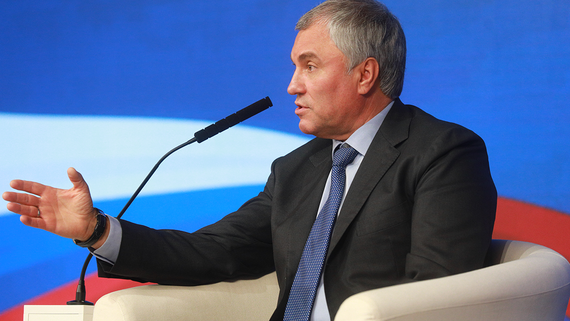Viacheslav Volodin concerned about gender reassignment operations in private clinics
[ad_1]

State Duma Chairman Vyacheslav Volodin said that 2,700 decisions related to gender reassignment have been registered in Russia. “It turns out that today, and all this is happening because of the decision of the WHO, with which the agreement was signed by the Ministry of Health, psychologists are excluded from the commissions that make these decisions. It turned out that decisions can be made in private clinics. And a person gets up in the morning and decides for himself that he is no longer a man, but a woman, not a woman, but a man. He goes to a paid clinic, the service costs from 30,000 to 60,000, receives a certificate, and with this certificate he goes further to the registry office, to the passport office to change his last name, first name, patronymic. And then, as you understand, the following may happen: they will enter into a legal marriage, and God forbid, they will take a child, ”Volodin said, speaking at the Council of Legislators in the Tauride Palace in St. Petersburg.
The Speaker of the State Duma said that Vice Speaker Vladislav Davankov, who is responsible for health issues in the lower house, is dealing with this topic in the State Duma. According to Volodin, Davankov and his colleagues should make appropriate proposals.
“Such a meeting with the participation of the Ministry of Health, the Ministry of Justice has passed. The Ministry of Justice supports the proposal for a ban, there is no other way. But, in fact, this is a problem that, as it turned out, was born by this WHO agreement, but also, of course, by the connivance of those who were supposed to exercise control,” Volodin said.
On April 24, Minister of Justice Konstantin Chuichenko said in an interview with TASS that one of the first steps to consolidate family values in Russian legislation could be the abolition of the possibility of changing sex in a passport and other documents. “Now, first of all, we are talking about legislatively excluding the possibility of changing the sex in the passport and other documents. The permissibility of gender reassignment was enshrined in Russian law as early as 1997. At that time, various international organizations, including WHO, set the tone in the formation of certain norms,” the minister said. According to him, now one of the grounds for making corrections or changes in the passport and other documents is a certificate of gender change issued by a medical organization. “At the same time, there is no provision for mandatory surgical interventions in order for a person to receive a certificate of gender change,” said Chuichenko.
Chuichenko also said that, according to registry offices, “from 2018 to 2022, more than 2,700 cases of gender reassignment were registered (according to documents), of which about 190 marriages were registered after gender reassignment.” “Thus, we see the following: a person who has changed the sex in the passport, but remains physiologically the same, can marry, adopt children. Questions also arise, at what age can such a person who has changed sex on paper retire? Or, if he breaks the law, to which correctional institution should he be sent? And so on. We have not just legal conflicts related to the issue of gender reassignment, but, above all, inconsistency with current conceptual documents and constitutional priorities,” Chuichenko said. Therefore, the Ministry of Justice plans to start work on amending the law on acts of civil status.
[ad_2]
Source link








